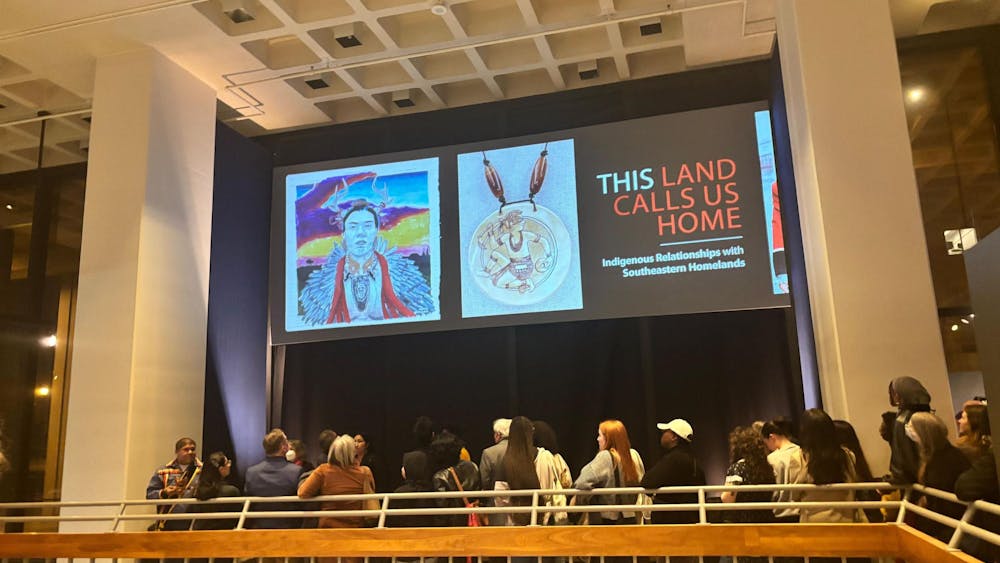Anthropology 386: Special Topics is a class that has been around for 10 years now. Here, students organize the annual student-led Sustainable Food Fair. According to the event’s Facebook page, the fair aims to engage the Emory community in the sustainability movement in Atlanta through a selection of educational tables and local vendors.
The students are required to complete Michael Pollan’s The Omnivore’s Dilemma: A Natural History of Four Meals (2006) over summer break in order to come back to school prepared to organize the fair. The book is a national bestseller about the dilemmas contemporary humans face as a nutritionally unselective species in a nation dominated by agribusinesses.
The students then work with Emory Dining and the Office of Sustainability to coordinate the event and meet twice with Anthropology Professor Dr. Peggy Barlett, who specializes in sustainable development, agriculture and economic anthropology.
“This class combines the academic issues of sustainable food with the practical knowledge of how to put on a complex event,” Barlett said. “It teaches teamwork, leadership, coherence of message and logistics, and it also offers students much room for creativity.”
Although some may think that the method is unorthodox, this alternative learning style has been well received by students.
“By incorporating a class with the fair, students are learning about sustainable food within the lens of ‘How can we explain this to others with no background in this area?’” College Senior Naomi Maisel said. “This helps make the lessons very applicable and easy to absorb.”
The students then choose to participate in either the organizational group or the educational group of the course.
Within the groups, the students specialize in a topic related to sustainability and work closely with local organizations, farmers and chefs to represent the different facets of food sustainability at the event.
The fair hosted seven educational tables this year which included topics like Fair Trade, Southern Food Heritage, Biodiversity and Pollinator Protection and Bees.
The list of vendors included Emory's own Oxford farm as well as family-run Sunshine Farm from Monroe (Ga.) that does everything from growing organic plums and figs to making frozen empañadas.
A variety of products from sustainable markets were sold, including some Emory favorites like Blue Donkey Coffee and King of Pops. Chefs from Emory Dining, Farm Burger, YEAH! Burger and Slice & Pint also participated in the fair.
The fair was also host to organizations like the self-proclaimed “eco-gastronomic” non-profit Slow Food Atlanta and Sevananda, “Atlanta’s original natural food store” and cooperative market.
By having such a varied presence, the students were able to illustrate the collective nature that sustainability requires.
“I think the variety of vendors that showed up was great to show that it's not just Emory trying to be better” College SeniorJordan Rosenthal said.
The purposes and goals of the fair are multifaceted, as they are both learning and teaching experiences for the students.
“The goal for the students is to learn not only about various sustainable food issues, but also how to accurately portray those issues to the public,” Maisel said.
The students get to be the learners in the classroom and the educators at the fair. Taking on the role of educators presented new challenges for some.
“[It was] difficult to make sure the fair had a good spread of options including farmers, restaurants, products and student organizations that ideally do not overlap,” Maisel said. “Of course there is always more to learn, but I can't think of a better fair.”
Read More
Trending







